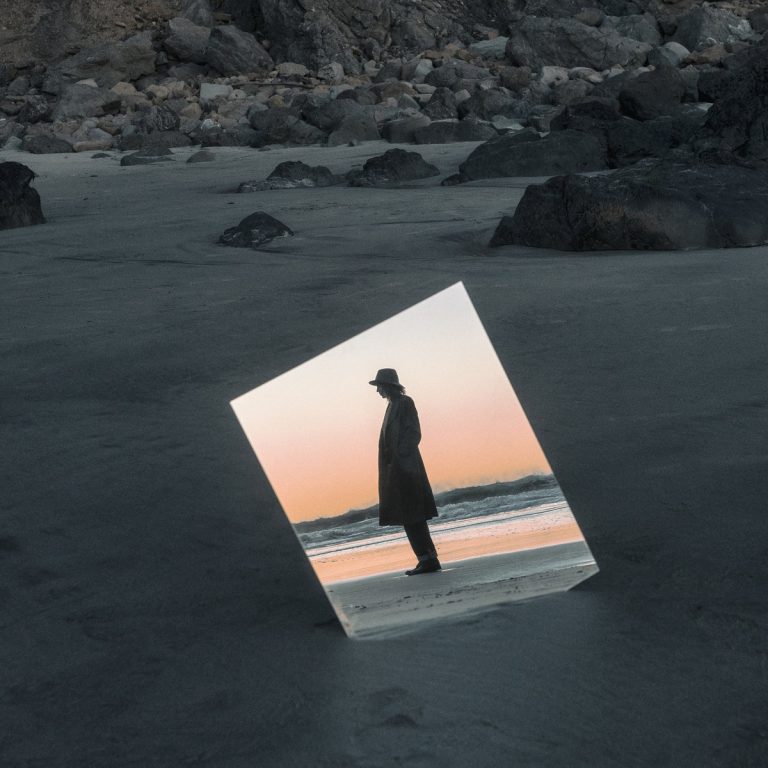It’s not the first sound you hear on the record, but Beth Orton’s latest album really started with a piano. It was an old, sort of beat up piano that came into her possession, and soon guided her en route to crafting her eighth LP, Weather Alive. While Orton has used the instrument plenty before, there’s something about the way the folktronica veteran uses the instrument’s scale and intimacy here — that spellbinding oxymoronic quality — to springboard her work into a totally new realm.
Right from the beginning, it’s clear this is Orton at her most comfortable. Weather Alive is languid and slow, unfurling like a billowy passing cloud. Where she has before been known for taking us through songs melding synths and acoustics, her recent work has mostly been one or the other. 2012’s Sugaring Season was a rustic, gold-dappled folksy affair, and then 2016’s Kidsticks was an about-face: a total pivot into electronics, keys, and beats. But now, on her first fully self-produced record, Orton has painted a stirring aural portrait of peace and quietude.
The title track is perhaps the best example of what Orton does so well on this record. Across seven sprawling minutes, Orton’s voice is low and conversational, her signature emotive creak more present than ever. The piano, horns, and droning synths coalesce into a soupy sky-wide vista. Eventually, it tumbles out of its structure, into a slew of fluttering woodwinds and rattling percussion. And through it all: her ever-present piano, played like rain. It’s the most cinematic her music has ever sounded.
The vibe doesn’t shift too wildly from there. “Friday Night” has more of a hooky melody, but the gently rolling percussion and dreamy keys keep the mood laid back and lazy. Make no mistake, though: this isn’t ‘lazy’ in the sense of ‘barely trying’; it’s more that this music comes off as almost effortless, like the songs just poured out into the ether, refracting the light that bore them back at Orton, and she wrangled it in just for us. The laziness here is more akin to a lazy river, and we are the floaters, being guided downstream.
The music across the record is a delight. The horns and woodwinds buoy “Friday Night” with a nonchalant bravado, as Orton’s voice cracks into wordlessness, like she’s having trouble articulating her thought, but the emotion remains. A trio of sax, piano, and nimble percussion blow wind into the sails of “Haunted Satellite”, like an abandoned windmill given life yet again. Vibraphone pairs with piano and a hand drum to lend “Arms Around a Memory” a dark and mysterious effect. And finally, the closing “Unwritten” leaves us off in a similar spot to where we started — a long, winding landscape of sound, while Orton speaks and sings in a tender murmur. It’s the night to the opener’s day.
Overall, the pulse of Weather Alive is, admittedly, rather low. As such, it is certainly the most atmospheric (and atmosphere-reliant) album Orton has ever made, and it’s the closest she’s come to creating an out-and-out mood piece, one that may not always be right for a given moment in your life. It’s not a terribly exciting record (except in the sense that it’s exciting to see an established artist try and succeed at something new), but the musicianship and songcraft are so strong, the production so resonant, and the album’s pockets are overflowing with tiny details. Orton has proved herself before as one of the finest sirens of heartbreak, adept at jumping genres and styles. But here, almost 30 years into her career, she has proven herself as even more than that. She’s a painter of sound, of mood. And one feels after listening to this document of searching textures, yearning melodies, and newfound sonic intimacy, that she’s only getting started.


